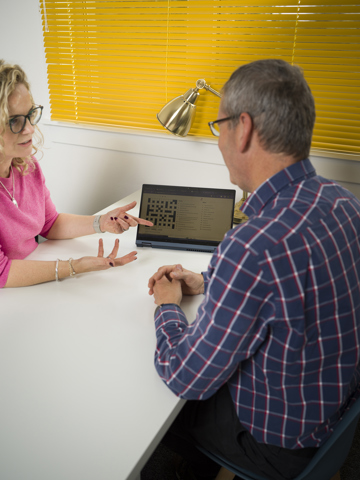Communication difficulties following a stroke
Following a stroke every individual’s experience is unique and communication difficulties following a stroke can vary widely. This is because different areas of the brain affected will dictate the severity of the stroke and the subsequent issues that might follow including the following;
Aphasia: This is a language disorder, which affects speaking, understanding, reading, and writing. It can range from mild to severe and can manifest in different ways, such as difficulty finding words, forming sentences, or comprehending language.
Dysarthria: This affects the muscles used for speech, making it hard to pronounce words clearly. Speech might be slurred, slow, or difficult to understand.
Apraxia of Speech: This condition affects the ability to plan and coordinate the movements necessary for speech. People with apraxia might know what they want to say, but have difficulty saying it.
Cognitive Communication Issues: A stroke can also cause difficulties with attention, memory, problem-solving, and other cognitive functions essential for effective communication.
Swallowing difficulties: These can also impact speech and communication as well as pose health risks.
How does stroke affect communication?
Communication problems do not affect your intelligence following a stroke. Communication difficulties mean that you have problems with the process of speaking and understanding language.
We understand how daunting it can be to try and have a conversation when you have, or know someone, with a communication difficulty. Communication strategies will give you the confidence to have these conversations and support you to learn new ways to connect.
Are there treatments that can help?
Communication problems can be treated using speech and language therapy. A speech and language therapist can help you to improve your speech, reading and writing as much as possible. They can also support you to learn other ways to communicate. These are known as compensation or coping strategies. They include anything from gestures to electronic devices, anything that can help you get across what you want to say as easily as possibly.
If you have communication problems you should be referred to a speech and language therapist for an assessment as soon as possible. Using the results of the assessment, the therapist will set up regular sessions to work with you. Speech and language therapy isn't just about the time you spend with your therapist. Your communication will only improve with practice, so the work you put in outside of your therapy sessions is just as important, to make progress.
Get started in three simple steps
Call us for a chat on +44 (0)7311 280 831 or book an initial consultation using the link below
Initial assessment undertaken together with family and those closely involved
We will deliver therapy tailored to your needs.



